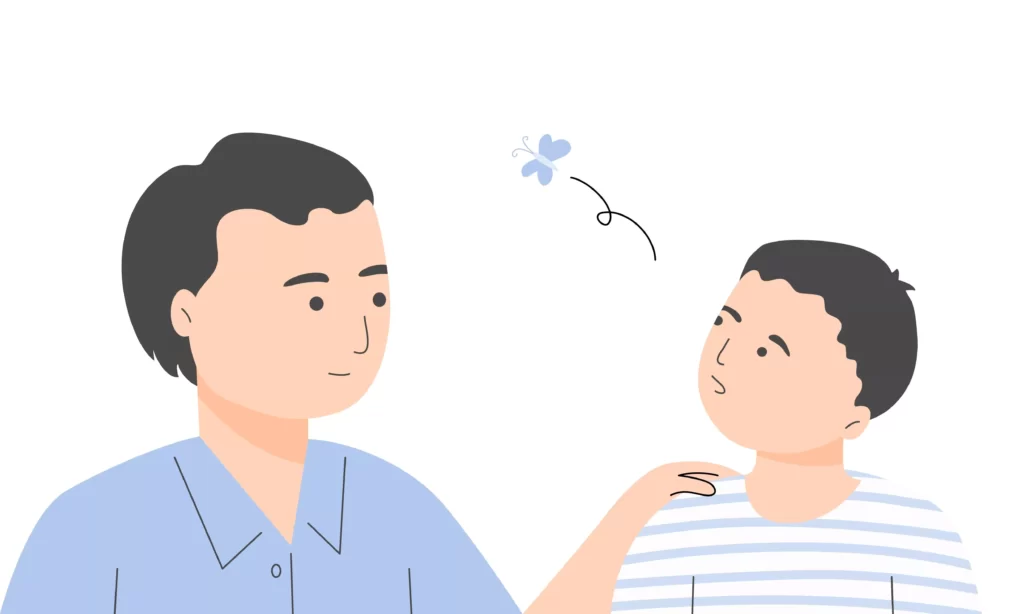Welcome to our ADHD awareness blog. Attention Deficit Hyperactivity Illness (ADHD) is a neurodevelopmental disorder. It affects millions of people worldwide. Despite its ubiquity, many individuals still have myths and misunderstandings about ADHD. It leads to stigma and prejudice. Hence, it is critical to increase awareness about ADHD and educate people about its impact on individuals and families. In this blog, we will discuss the fundamentals of ADHD.
Moreover, refute common beliefs, and present concrete strategies for making a difference in the lives of persons with ADHD. So, let’s start the dialogue and work together to make the world more inclusive and understanding.
Definition of ADHD
Attention Deficit Hyperactivity Syndrome Illness, sometimes known as ADHD. It is a neurological condition. Consistent problems with focus, hyperactivity, and impulsiveness. Thus, these symptoms might make it difficult to go about your daily activities. It can cause problems at school, work, and in relationships. Additionally, ADHD is a challenging condition. It impairs the brain’s capacity to focus, control impulsive behaviour, and manage hyperactivity.
ADHD is estimated to affect 3-5% of children and adults globally. By making it a well-known and widespread disease. ADHD symptoms might vary greatly between persons. As a result, getting a correct diagnosis and treatment plan from a mental health specialist is crucial.
It is vital to remember that ADHD appears differently in children, adolescents, and adults. Children with ADHD frequently exhibit symptoms of inattention, hyperactivity, and impulsiveness. However, adults with ADHD may exhibit more symptoms of inattention and disorganisation. Additionally, ADHD can co-occur with other illnesses. Such as depression, anxiety, and learning difficulties, confounding the diagnosing process even further.
Despite the difficulties associated with ADHD, persons with ADHD may have full and productive lives with adequate treatment and support. Hence, we can reduce stigma and improve access to services and assistance for persons with ADHD. By promoting awareness of the condition and advocating for those who are afflicted.
Importance of Raising Awareness of ADHD
Raising ADHD awareness is critical for various reasons:
- Stigma reduction: There is still a lot of stigma surrounding ADHD. Many people with the illness encounter discrimination and unfavourable attitudes from others. Thus, raising awareness about the realities of ADHD can aid in the reduction of stigma. It can help with the promotion of a more understanding and tolerant society.
- Improved access to resources: Due to a lack of awareness of the illness, many people with ADHD are misdiagnosed or get insufficient treatment. Hence, raising awareness of ADHD can assist in increasing access to the correct diagnosis. Moreover, accurate treatment helps those suffering from the illness to get the care they require.
- Better understanding of the disorder: ADHD is a complicated and often misunderstood disorder. So, raising awareness may assist in enhancing education and support for people with ADHD and their families. As well as raise understanding of the symptoms, causes, and therapies for the illness.
- Improved quality of life: By raising awareness of ADHD, people with the illness can get the help they need. Hence, it will help to control their symptoms and live happy lives. Access to adequate therapy, understanding from loved ones, and a more welcoming and flexible society are all part of this.
Hence, raising awareness of ADHD is critical for improving the lives of those who suffer from the illness and encouraging a more educated and understanding society.
The Benefits of Raising ADHD Awareness
- Improved Diagnosis and Treatment: Raising ADHD awareness can lead to a better understanding of the illness. It encourages more people to seek medical care. As a result, early and precise diagnosis is possible, which is critical for effective therapy.
- Reduced Stigma: People with ADHD are stigmatised and stereotyped. So, Raising knowledge about the disease aids in dispelling myths and lowering the stigma connected with it.
- Greater Knowledge: Educating the public about ADHD leads to a better understanding of the condition and its impact on those with ADHD. Hence, this knowledge can assist in fostering empathy and foster a more supportive atmosphere for persons with ADHD.
- Improved Accommodations: Raising knowledge of ADHD can lead to more understanding and support for accommodations in the workplace, school, and other contexts. Thus, this can help people with ADHD flourish and prosper in their personal and professional lives
- Increased Support: As more people become aware of ADHD, additional services, support groups, and organisations may become accessible to persons with ADHD and their families.
- Increased Research: As more people become aware of and understand ADHD, more funding may be committed to research into the disorder. Hence, this might lead to better ADHD treatments, therapies, and resources.
- Improved Quality of Life: With more support and understanding, people with ADHD can have a better quality of life. It will make them feel less shame, guilt, and loneliness.
What Strategies Can Be Used to Support People With ADHD?
There are several strategies to help people with Attention Deficit Hyperactivity Disorder (ADHD):
- Medications: Stimulants, for example, can help treat symptoms of ADHD. Such as inattention, impulsiveness, and hyperactivity. Thus, individuals must collaborate with their healthcare professionals to find the most suitable drug and dose.
- Behavioural treatment: Behavioural therapy can help people with ADHD. It builds coping skills and enhances their organisational and time-management skills. Also, control their symptoms more effectively.
- Lifestyle modifications: Adopting good lifestyle habits such as frequent exercise, a balanced diet, and proper sleep. Which might help reduce ADHD symptoms.
- Organisation and time management: Breaking jobs into smaller, manageable sections, utilising a planner or calendar, and prioritising chores can help people with ADHD better manage their time and stay organised.
- Support from loved ones: Individuals with ADHD might benefit from the support of loved ones. This might include assistance with everyday duties, and encouragement. As well as knowledge of the difficulties associated with ADHD.
- Accommodations in school and work: Providing persons with ADHD with extra time on tests, a quiet work atmosphere, or preferential seating can help them perform in academic and work environments.
- Self-care: It practises such as mindfulness, stress-management strategies, and relaxation exercises. Thus, it can assist people with ADHD.
Additionally, individuals with ADHD need to work closely with their healthcare provider. They collaborate to create a thorough assistance plan. Thus, it is tailored to their requirements and difficulties. Individuals with ADHD may live successful and satisfying lives with the right help and services.
Symptoms of ADHD

ADHD (Attention-Deficit/Hyperactivity Disorder) symptoms can be divided into two categories: inattentiveness and hyperactivity-impulsiveness.
Inattentiveness symptoms include:
- Difficulty paying attention or sustaining attention in activities or assignments
- Difficulties following directions or completing jobs
- External stimuli can distract
- Frequently misplacing or forgetting objects
- Task and activity organisation is difficult.
- Tasks that demand persistent mental effort are avoided.
- Inattention to detail
Symptoms of hyperactivity-impulsiveness include:
- Seat fidgeting or sweating
- Difficulty remaining seated when necessary
- Extreme running or climbing
- Difficulty participating in quiet leisure activities
- Excessive talking
- Answers are blurred out before the questions are finished.
- Interfering with or bothering others
- Waiting for one’s turn is difficult.
Diagnosis and Treatment
A healthcare practitioner will usually diagnose ADHD (Attention-Deficit/Hyperactivity Disorder). Based on a clinical examination of symptoms, such as a physician, psychologist, or psychiatrist. Moreover, a thorough medical examination, personal and family medical history, and standardised rating scales are all part of the process.
Medication and behavioural therapy are frequently used in the treatment of ADHD. These medications include stimulants as well as non-stimulant meds. Additionally, cognitive-behavioural therapy, behaviour modification, and psychotherapy are all forms of behavioural treatment.
There are non-medical methods that can assist in managing ADHD symptoms in addition to medication and behavioural therapy. These may include:
- Structured schedule: Having a consistent daily routine can help people with ADHD keep organised and on track.
- Exercise: It has been demonstrated to reduce ADHD symptoms by lowering hyperactivity and impulsiveness. While enhancing concentration and attention.
- Diet: Some people with ADHD may benefit from a diet. It is high in protein, fibre, and important vitamins and minerals while being low in artificial additives.
- Sleep: It is vital for health and can be especially useful for people with ADHD. Since sleep restriction can exacerbate symptoms.
- Time management: Setting attainable objectives, breaking things down into smaller pieces, and utilising a planner or calendar can help people with ADHD better manage their time.
It is crucial to remember that each person is unique and may react differently to different treatment techniques. Therefore a good diagnosis and close monitoring by a healthcare expert are required to decide the best course of action.
Support Organisations That Raise Awareness of ADHD
Raising awareness about ADHD can be done through a variety of actions. Including financial assistance for organisations that advocate for persons with ADHD and their families. Some techniques for assisting such organisations are as follows:
- Donating: You can donate money to organisations that work to raise awareness and support for persons who have ADHD.
- Volunteering: You might help with events, campaigns, and outreach efforts. You can help by volunteering your time and expertise.
- Sharing information: You can help educate others about ADHD by sharing material on social media and within your network.
- Participating in advocacy efforts: You can increase awareness by joining advocacy groups. Bring about positive change for persons with ADHD.
- Connecting with others: You can raise awareness and show your support for the ADHD community. By interacting with others who have ADHD. Joining a support group or participating in community activities, for example.
You can help individuals with ADHD and their families. By donating to organisations that raise awareness about the illness.
Why is Asthma Awareness Important in The UK?
Asthma awareness is critical in the United Kingdom, where it affects over 5 million people. It can have a substantial influence on one’s quality of life. Raising awareness can lead to improved disease management. As well as better results and fewer hospitalisations. Thus, by dispelling myths about asthma via education and outreach, we can enhance access to care and early intervention.
Educational events, media initiatives, and community outreach can all be part of asthma awareness efforts. By increasing public knowledge, the United Kingdom may aim to improve health outcomes. As well as reduce the effect of asthma on individuals and communities.
Summary
To summarise, ADHD is a complicated disorder. Millions of people and their families are affected. Raising awareness of ADHD is critical for improving the lives of people with the illness and reducing the stigma associated with it. Supporting organisations that advocate for those with ADHD, volunteering, providing information, participating in advocacy activities, and connecting with others who are affected by ADHD are all ways to get engaged and make a difference.
We can enhance the lives of people with ADHD. Also, assists in building a more inclusive and supportive society for all by working together and raising awareness.
FAQs
Question 1: What is ADHD?
ADHD is an abbreviation for Attention-Deficit/Hyperactivity Disorder. It’s a neurodevelopmental condition with symptoms including inattention, impulsiveness, and hyperactivity.
Question 2: What causes ADHD?
ADHD’s actual cause is unclear. However, research indicates that it may be caused by a combination of genetic, neurological, and environmental factors. Brain development and function, neurotransmitter levels, and toxin exposure are just a few examples.
Question 3: Can diet and lifestyle changes help with ADHD symptoms?
Although a healthy diet and lifestyle can improve overall health and wellness. There is little scientific evidence that dietary and lifestyle changes may significantly lessen ADHD symptoms. Hence, maintaining a healthy diet and lifestyle, on the other hand, is normally recommended for everyone, even individuals with ADHD.
Question 4: Can medication for ADHD have side effects?
ADHD drugs, like any other treatment, can have negative effects. ADHD drugs can cause appetite loss, difficulty sleeping, stomach pain, and headaches. It is critical to address any adverse effects with your doctor and adjust your treatment plan as needed.
Question 5: How does ADHD affect daily life?
ADHD may have a wide range of effects on daily life. These symptoms include difficulty focusing, forgetfulness, impulsiveness, and restlessness. As a result of these symptoms, people with ADHD may struggle to perform well in school, work, and personal relationships. Despite this, most people with ADHD can regulate their symptoms and live meaningful lives with the correct therapy.




